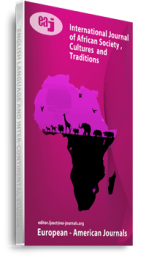The work focuses on the traditional African governance; it specifically examines those traditional forms of governance that made the society to stand firmly before the advent of Europeans. Many of these traditions were not written down, there were no constitutions; it was just a commitment to make the society move. If constitutionalism is defined as a commitment to limitations on political powers, then it is possible to have such a commitment without a single documentary constitution most especially when commitment is in the blood and culture of the people and at the same time, those people have a keen sense of their own identity.In this work, we will interrogate traditional culture of governance in some communities in Africa. We will examine how effective that governance was and then see the level of commitment to limitation on political power (constitutionalism) and whether some of the relics of governance are still preserved till today. This paper therefore, will employ the conceptual, analytical and reconstructive research methods. While the conceptual method will focus on clarifying key concepts such as constitutionalism, commitment, governance, tradition and culture; the analytical method will examine the period of governance before the advent of Europeans. The reconstructive method will establish the need for this commitment in today Africa.
Keywords: Commitment, Constitutionalism, Culture, Governance, Tradition

